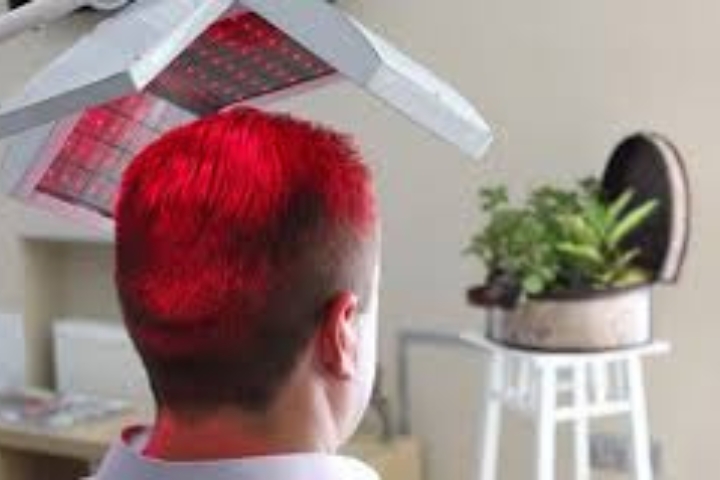Hair loss is a common concern affecting millions of individuals worldwide, prompting the exploration of various treatments to combat and reverse it. Among these, laser therapy has gained attention as a non-invasive and painless option.
While medications like minoxidil and finasteride are widely used, and hair transplant surgery offers a more permanent solution, laser treatment stands out for its innovative approach. Moreover, it is believed to stimulate hair growth by improving circulation and invigorating hair follicles. However, its effectiveness remains inconsistent, raising questions about its suitability for everyone.
1. Understanding Laser Hair Growth Therapy
Laser hair growth therapy, also known as low-level laser therapy (LLLT), uses red light to stimulate the scalp. The photons emitted are absorbed by weak hair follicles, potentially improving hair density and growth. Moreover, the process is considered non-invasive and less intense than surgical alternatives, making it appealing to many.
2. The Science Behind Laser Hair Growth
It further theorizes that LLLT accelerates blood flow and stimulates the hair follicle to promote new growth. It further promotes already existing hair, an added advantage. Scientifically, however, the efficacy is still in question since people do not benefit from it.
3. What the Studies Have to Say
Various studies have shown laser therapy with mixed results. For example, one 2014 review stated its safety as well as moderate efficacy in both genders. Additionally, there was a 2013 review with a 39% increase in hair growth in men after 16 weeks. Of course, the results are promising, but further extensive research is needed for definitive conclusions.
4. Benefit of Laser Hair Growth Therapy
This treatment is pain-free, non-invasive, and has no secondary effects, making it a popular method for most. Moreover, it strengthens and makes hair much thicker in texture, so it appeals to everyone who’s just beginning to experience hair loss. Also, this procedure fits for people who want gradual, natural processes of re-growing hair.
5. Challenges and Limitations
This is promising, but the therapy requires much time commitment, often several sessions a week for months. Also, the costs can be pretty high, in the thousands annually. Further to this, the treatment may not benefit people who have already advanced hair loss, thus very limited applicability.
6. Is Laser Therapy Right for You?
Whether or not LLLT is suitable would depend upon individual needs and conditions. In particular, a doctor should be consulted because there are medications that could conflict with the said therapy. While it could be beneficial for early hair loss, its long-term efficacy and safety are not known, so careful deliberation should be observed.
Laser hair growth therapy offers a noninvasive and painless option for addressing hair loss, with some studies suggesting positive results. However, its effectiveness varies among individuals, and it may be less beneficial for those in advanced stages of hair loss. Moreover, the treatment requires significant time and financial investment, as ongoing sessions are typically necessary.
Also, its interaction with photosensitizing medications and the lack of long-term safety data highlight the need for caution. While it may work for some, during your decision-making process, consult your doctor to weigh the benefits and drawbacks. Furthermore, sudden hair loss should always prompt a medical evaluation to rule out underlying conditions



